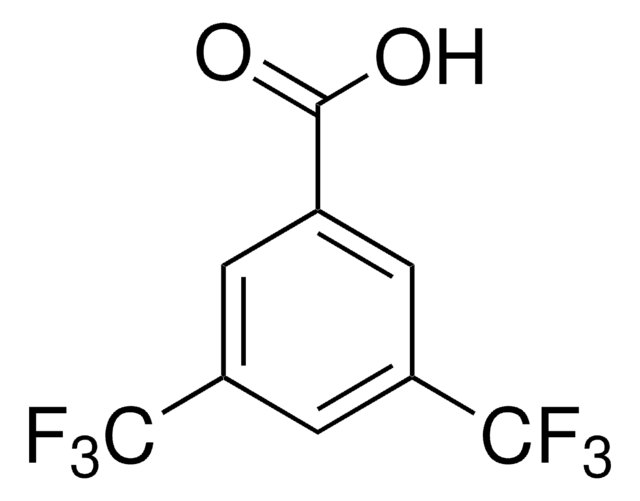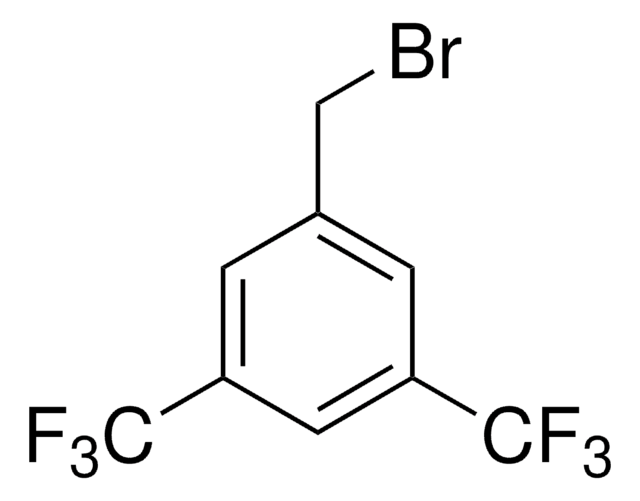263419
3,5-Bis(trifluoromethyl)phenylacetic acid
98%
About This Item
Productos recomendados
assay
98%
form
solid
mp
121-123 °C (lit.)
solubility
methanol: soluble 25 mg/mL, clear, colorless
SMILES string
OC(=O)Cc1cc(cc(c1)C(F)(F)F)C(F)(F)F
InChI
1S/C10H6F6O2/c11-9(12,13)6-1-5(3-8(17)18)2-7(4-6)10(14,15)16/h1-2,4H,3H2,(H,17,18)
InChI key
PAWSKKHEEYTXSA-UHFFFAOYSA-N
¿Está buscando productos similares? Visita Guía de comparación de productos
Application
- as building block to synthesize the pentaamine and bis-heterocyclic libraries
- in determination of ionic perfluorinated substances and telomers in leachates from landfills and sediment samples
signalword
Warning
hcodes
Hazard Classifications
Eye Irrit. 2 - Skin Irrit. 2 - STOT SE 3
target_organs
Respiratory system
Storage Class
11 - Combustible Solids
wgk_germany
WGK 3
flash_point_f
Not applicable
flash_point_c
Not applicable
ppe
dust mask type N95 (US), Eyeshields, Gloves
Certificados de análisis (COA)
Busque Certificados de análisis (COA) introduciendo el número de lote del producto. Los números de lote se encuentran en la etiqueta del producto después de las palabras «Lot» o «Batch»
¿Ya tiene este producto?
Encuentre la documentación para los productos que ha comprado recientemente en la Biblioteca de documentos.
Nuestro equipo de científicos tiene experiencia en todas las áreas de investigación: Ciencias de la vida, Ciencia de los materiales, Síntesis química, Cromatografía, Analítica y muchas otras.
Póngase en contacto con el Servicio técnico









